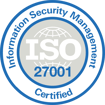Corporate income tax (CIT):
Taking into account both the federal, and the cantonal and communal income tax, the combined effective tax rate is between 11.80% to 21.04% (for 2023), depending on the place of residence. The effective CIT rate can in fact be lowered due to some cantonal provisions and some tax incentives are also granted.
To be noted that relief is granted for qualifying participation provided that the following conditions are cumulatively met: (i) 10% shareholding and (ii) the participation sold was owned by the company for a period of at least one year.
Capital gains
Capital gains on the sale of assets are treated as corporate ordinary income and are subject to corporate income tax (and losses are deductible).
Nota bene: for individuals holding their assets as part of their private wealth, capital gains are tax exempted.
Dividends
Dividends are taxable. However, relief is granted for dividends received from a qualifying participation in a resident/non-resident company (prerequisite: (i) 10% shareholding; or (ii) the value of the participation is at least CHF 1 million).
Withholding tax (WHT)
Dividends paid are subject to 35 % withholding tax. However, refund can be claimed under conditions:
- CH-EU agreement: WHT is reduced to 0% on dividends distributed between related companies’ resident of both countries provided the capital participation is of at least 25%.
- Double tax treaties concluded between Switzerland and other jurisdictions allow to obtain WHT refund under conditions which are specific to each treaty.
- Swiss residents will obtain a total refund of the WHT once they have declared the amount perceived in their annual Swiss tax return.
WHT does not apply to royalties and fees charged on technical services provided.
Transfer pricing
Switzerland does not have formal transfer pricing legislation or documentation requirements. However, the arm’s length principle applies to all transactions carried out between Swiss entities and related parties.
























